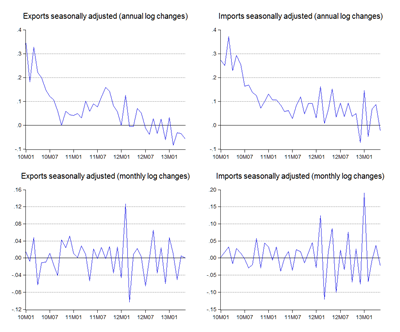Last Thursday’s Monetary Policy Committee meeting resulted in another anti-climax (excerpt):
At the Monetary Policy Committee (MPC) meeting today, Bank Negara Malaysia decided to maintain the Overnight Policy Rate (OPR) at 3.00 percent…
…For the Malaysian economy, domestic demand has continued to support growth amid the continued moderation in external demand. The sustained weakness in the external sector may, however, affect the overall growth momentum. Going forward, private consumption is expected to remain steady underpinned by income growth and stable labour market conditions. Capital spending in the domestic-oriented industries and the ongoing implementation of infrastructure projects will also support investment activity…
…The MPC considers the current stance of monetary policy to be appropriate given the outlook for inflation and growth. In addition to domestic conditions, the MPC will continue to carefully assess the global economic and financial developments and their implications on the overall outlook for inflation and growth of the Malaysian economy.




